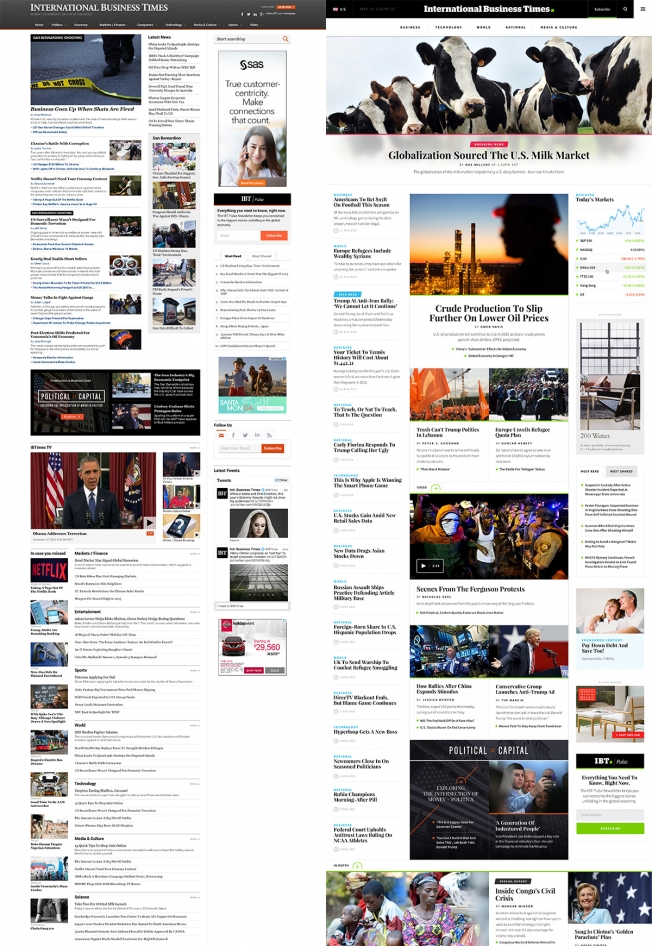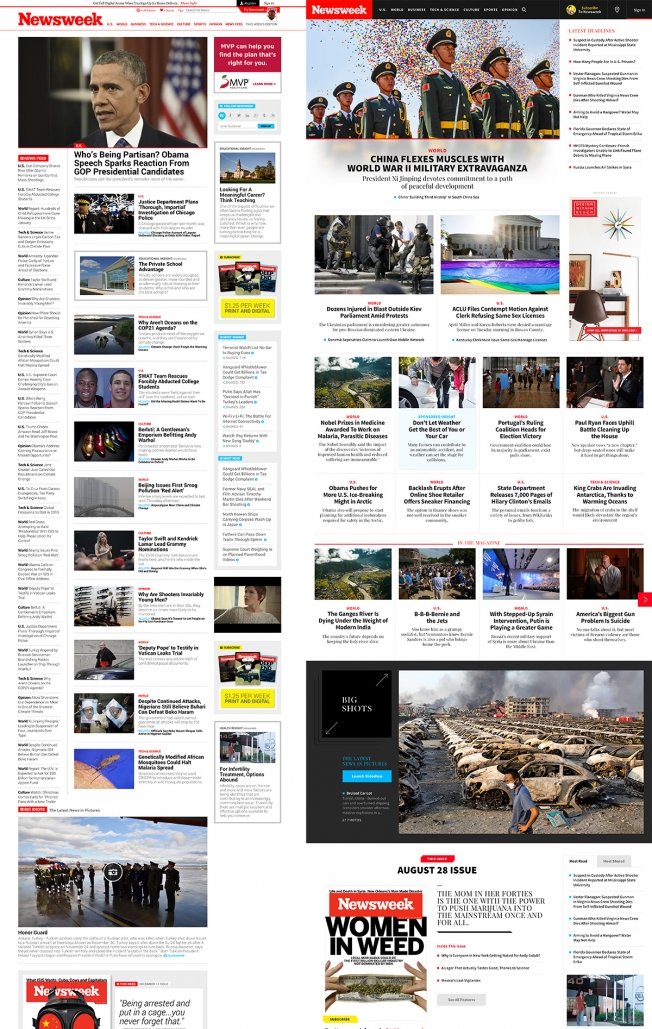As it approaches its 10th birthday, IBT Media is ready to unveil new looks for its two flagship sites: the International Business Times and Newsweek.
The International Business Times' redesign went live overnight, while Newsweek's new look will roll out sometime in the next few weeks. Both feature unified and dynamic template systems, are optimized for mobile and video, and put the needs of advertisers first.
"What you're going to see is those brands and the experience the readers will have optimized to a world-class level," Mitchell Caplan, IBT Media's CMO, told Adweek.
Below is a side-by-side comparison of IBTimes' new look (right) and its old Web design (left):


Caplan, a former CMO for both McCann and Young & Rubicam, approached the redesign by putting advertisers and brands front and center.
"Coming from the agency world, I know that there is a lot of dissatisfaction around the platforms," he said. "We needed to have a better, deeper relationship with the ad-buying community."
To do that, IBT Media's design team first looked at how video ads are being served and how programmatic networks are working. His team designed the experience with those findings in mind then built the content structure. "It's a bit of a counterintuitive strategy," Caplan admitted.
"What we were able to do with this redesign was really limit the amount of ads and increase viewability," said Richard Pasqua, IBT Media's chief experience officer. "We knew we couldn't create a tsunami change, but we needed to start to set a better precedence and foundation for future advertising."
Pasqua said the goal was to have fewer but better ads, ones that provide a better ROI for partners and, possibly, slow the growth in readers who use ad blockers. "We're eliminating the invasive ads, and that's why people lean towards ad blocking," Pasqua said. (Digital Content Next, a trade group representing online publishers, released a study Wednesdaythat found one-third of Americans would consider using ad-blocking software in the next three months.)
IBT was a virtual unknown in the media world when it acquired Newsweek from IAC in 2013. Caplan said the new look for Newsweek caps a two-year turnaround for the iconic, 82-year-old news weekly.
"For the first year of Newsweek, we didn't accept advertising," Caplan said. "We wanted the focus to be entirely on the reader experience." While Newsweek won't unveil its new look for another few weeks, Adweek got a sneak peak at the redesign, which brings some of the print magazine's look to the digital brand. Below on the right is the new design with the old design on the left:


Caplan hopes the redesign will help the two brands stand out in a cluttered marketplace by appealing directly to the ad community. "Most redesigns are approached from the content side, and the advertising just sort of gets tossed in," he said. "If we're not doing a great job for our partners, we're not going to grow."